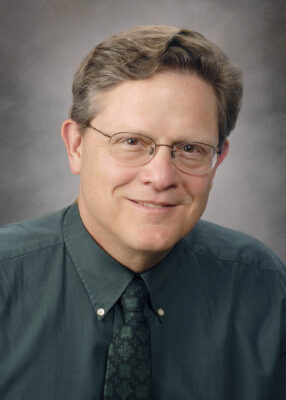Urology Residency Program
About our Residency Program
We are a growing Department that has a focus on Education, Research, and Clinical Care with a constant effort to improve the quality of all three. The Residency Program in Urologic Surgery is the centerpiece of our Department. The Program has a track record of training leaders in all aspects of the Specialty of Urology including leaders in Academic Urology as well as physicians who set the standard for care in their community. Our efforts are to train a well-rounded individual who is exposed to all aspects of the discipline of Urology who, after completion of training, has all options open to him or her including the choice of type of practice or the very best fellowship programs available. We have been very successful in this effort. We also strive to make the training program here in San Antonio a congenial, team effort in which everyone is focused on making the educational experience as productive and enjoyable as possible. We receive comments from visitors, patients, and colleagues that it is one of the nicest groups of folks around..
What is expected in Urology residency?
In general, the Urology resident is expected to be well-versed in patient care including the management of multiple complex medical problems while developing an organized approach to management of the patients’ urologic issues. Residents generally work in teams of junior and senior residents – so the ability to get along in the cooperative environment and to put the interests of the group (and their patients) foremost is invaluable to a successful residency.
What are we looking for in a prospective resident?
The characteristics we desire are: bright, enthusiastic, able to work well with others (often under challenging, fast-paced circumstances), and a track record of “doing more than is expected”. This combination of attributes places our residents head and shoulders above their peers and makes training in San Antonio a challenging, yet enjoyable experience.
Contact Us
Jessica Goetz, D.O.
Program Director
Email: goetzj4@uthscsa.edu
Landry Morrison
Program Coordinator
Email: morrisonl1@uthscsa.edu
UT Health San Antonio
Department of Urology
7703 Floyd Curl Drive
Mail Code 7845
San Antonio, Texas 78229-3900
Phone: 210-567-6831
Fax: 210-567-6868
Connect With Us!

"The best residents will take advantage of every situation as a learning opportunity. A complex case becomes a case report; a complication becomes an opportunity to improve the overall practice through new QI measures; a presentation to your peers becomes a chance to develop new paradigms for research. Residents who dedicate themselves to good patient care and take ownership of their career and profession do well and will be sought after. Those who just view it as a job or career controlled by others will generally get burned-out early on. Work hard, work smart, work well with your colleagues, and enjoy the challenges. If you take control of your career by making it fulfilling, challenging and fun, you’ll never ‘work’ a day in your life." Joseph Basler, Ph.D., M.D. Director of Education
